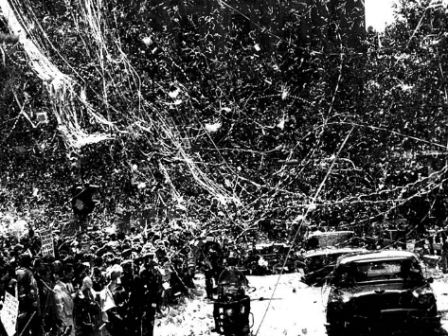During the early days of his presidency, Donald Trump has frequently taken to the Executive Order, why is unilateral presidential directives so contested? What is the history of the Executive Order, what are the risks of presidential directives, and how did Roosevelt change the norms of presidential action?
In episode 25, Professor Graham Dodds (Concordia University) talks about the politics and history of executive orders and other unilateral presidential directives. Dodds is an authority on executive orders and the author of Take Up Your Pen: Unilateral Presidential Directives in American Politics. He is currently working on a book on presidential mass pardons and amnesties.
If you like the podcast, be sure to like us on Facebook, follow us on Twitter, or subscribe on Soundcloud or iTunes.

